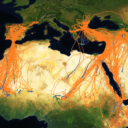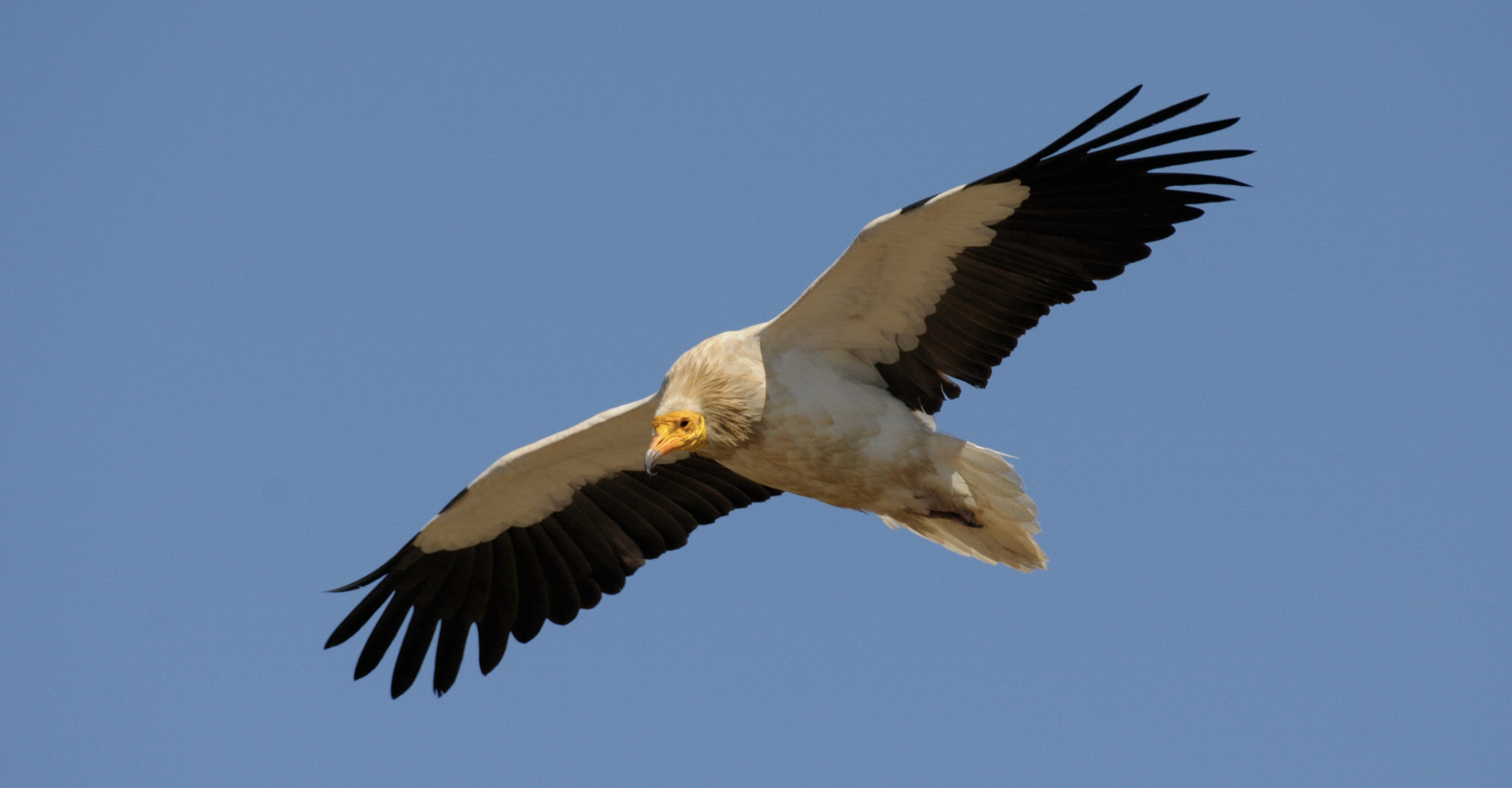Recently colleagues working in the project LIFE RUPIS were alerted by a local inhabitant to a strange occurrence – a dead Egyptian vulture that “had fallen dead from the sky” after a fight with another raptor. The witness is a reliable acquaintance, and a quick investigation on the spot have discounted the possibility of a poisoning incident.
The necropsy done by a trained wildlife veterinary has confirmed that the cause of death was trauma, caused by a perforation in the cervical area of the skull, near the right eye. The perforation was relatively large, so the suspicion is that the Egyptian vulture was involved in a territorial dispute with a large eagle – probably a golden eagle or a bonelli´s – often very aggressive. The three species have breeding territories in the area where the incident occurred, in the Coa valley. The corpse of the adult Egyptian vulture has been kept for further analysis, notably of lead.
This happened before Egyptian vultures lay their eggs, so we hope that this adult is now replaced by another individual in time for the breeding season.
The project LIFE RUPIS, which aims to strength the populations of Egyptian Vulture in Douro International valley, through improved breeding success and reduction of mortality, is implemented by the VCF and partners, including SPEA (BirdLife in Portugal), ATN and Palombar (regional conservation organisations in NE Portugal), the Junta de Castilla y Leon & the Fundación Patrimonio Natural de Castilla Y León, the Portuguese electricity distributor EDP-D, the Portuguese statutory conservation agency ICNF and the Portuguese environmental police force (GNR). The project is tackling the most important threats to Egyptian vultures, namely food shortages, degradation of the habitat, electrocution risk and the illegal use of poison.
The Egyptian vulture is Europe’s most threatened vulture species – classified as “Endangered” at global level. While the three others European vulture species are registering positive trends across Europe, Egyptian vultures continue to decline in most regions in the continent (and elsewhere).
Photo: ATN






